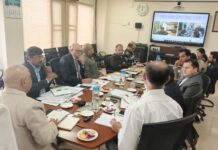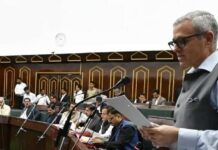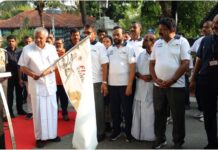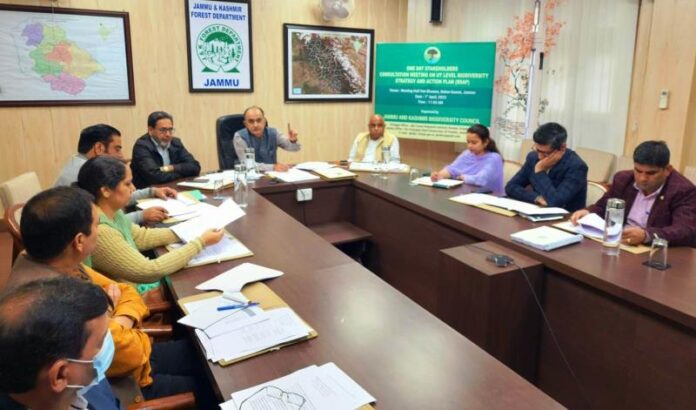JAMMU, APRIL 01: A stakeholders consultation meeting on the Jammu and Kashmir Biodiversity Strategy and Action Plan (BSAP) was held at Van Bhawan in Jammu. The BSAP is a roadmap for biodiversity conservation.
The meeting was chaired by Chairman of the Jammu and Kashmir Biodiversity Council, Dr Mohit Gera, and began with a welcome address by Member Secretary of the Jammu and Kashmir Biodiversity Council, Asaf Mehmood Sagar.
The meeting was attended by representatives from various departments and institutions related to biodiversity conservation, including Rural Development and Panchayati Raj, Horticulture, Housing and Urban Development, Floriculture, Agriculture Production, Animal and Sheep Husbandry, Revenue, Soil and Water Conservation, Wildlife Protection, Education, Tourism, Fisheries, Forest Ecology and Environment, and Social Forestry.
Dr Mohit Gera stated that the purpose of the consultation meeting was to gather input from all stakeholder departments on the action points highlighted in the BSAP. He added that the activities proposed under the BSAP needed to be evaluated by the stakeholder departments in light of their available resources. The final draft of the BSAP was submitted to the government for consideration and it was recommended that consultation meetings be held with all stakeholder departments.
The BSAP focuses on 11 action points, 38 strategies, and 161 activities covering all aspects of biodiversity conservation. Dr Gera mentioned that the BSAP would be a key document in the years to come due to Jammu and Kashmir’s vulnerability to climate change and its link to biodiversity.
Earlier in the meeting, Member Secretary of the Jammu and Kashmir Biodiversity Council, Asaf Mehmood Sagar, gave a brief background on the process involved in preparing the BSAP and the efforts made by the council to refine the document. The process for drafting the Biodiversity Strategy and Action Plan for Jammu and Kashmir was initiated following national guidelines issued by the Ministry of Environment, Forest and Climate Change (MoEF&CC) in 1999.
The guidelines called for the development of national as well as state and union territory level Biodiversity Strategy and Action Plans. The process involved consultation with various concerned departments such as Agriculture, Horticulture, Urban Local Bodies, Floriculture, Animal and Sheep Husbandry, Wildlife Protection, and Rural Development and Panchayati Raj.




















